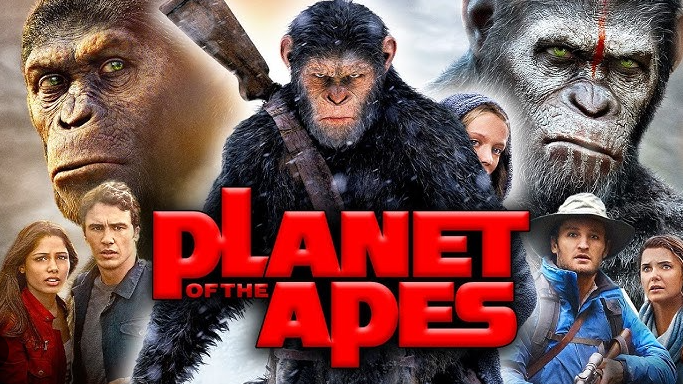Rise of the Planet of the Apes (2011), directed by Rupert Wyatt, serves as a reboot and prequel to the original Planet of the Apes franchise. The film explores the origins of the conflict between humans and intelligent apes, focusing on themes of scientific experimentation, human arrogance, and animal rights.
The story centers around Will Rodman (James Franco), a scientist working for a pharmaceutical company, who is developing a drug called ALZ-112, designed to cure Alzheimer’s disease. His primary motivation is personal, as his father (John Lithgow) suffers from the illness. The drug is tested on chimpanzees, significantly boosting their intelligence. However, after a violent incident involving one of the test subjects, the experiment is shut down, and Will is left to care for a baby chimp named Caesar, whose mother had been exposed to the drug.
As Caesar grows, it becomes evident that he has inherited his mother’s enhanced intelligence. Will raises Caesar as part of his family, but as the chimp matures, he becomes increasingly aware of his differences and the limitations of living among humans. After a confrontation with a neighbor, Caesar is taken away and placed in a primate shelter, where he witnesses the cruel treatment of other apes.
In the shelter, Caesar’s intelligence allows him to outsmart his human captors and communicate with the other apes. He gains their loyalty, and with access to more of the ALZ-112 drug, Caesar enhances the intelligence of the other primates. This leads to a climactic rebellion, where Caesar and the apes escape captivity and make their way to the Redwood Forest, leaving behind the human world.
One of the film’s most memorable moments is when Caesar, after being silent for most of the film, speaks his first word—“No!”—a powerful declaration of defiance and a turning point in the narrative.
The film was widely praised for its visual effects, particularly the performance capture work used to create the apes. Andy Serkis, who portrayed Caesar through motion capture, received critical acclaim for his nuanced performance, bringing emotional depth and complexity to the character.
Rise of the Planet of the Apes was a commercial success and set the stage for the rest of the reboot trilogy. It combines intense action with thought-provoking themes about humanity’s relationship with nature, the ethical dilemmas of scientific advancement, and the consequences of playing god.



